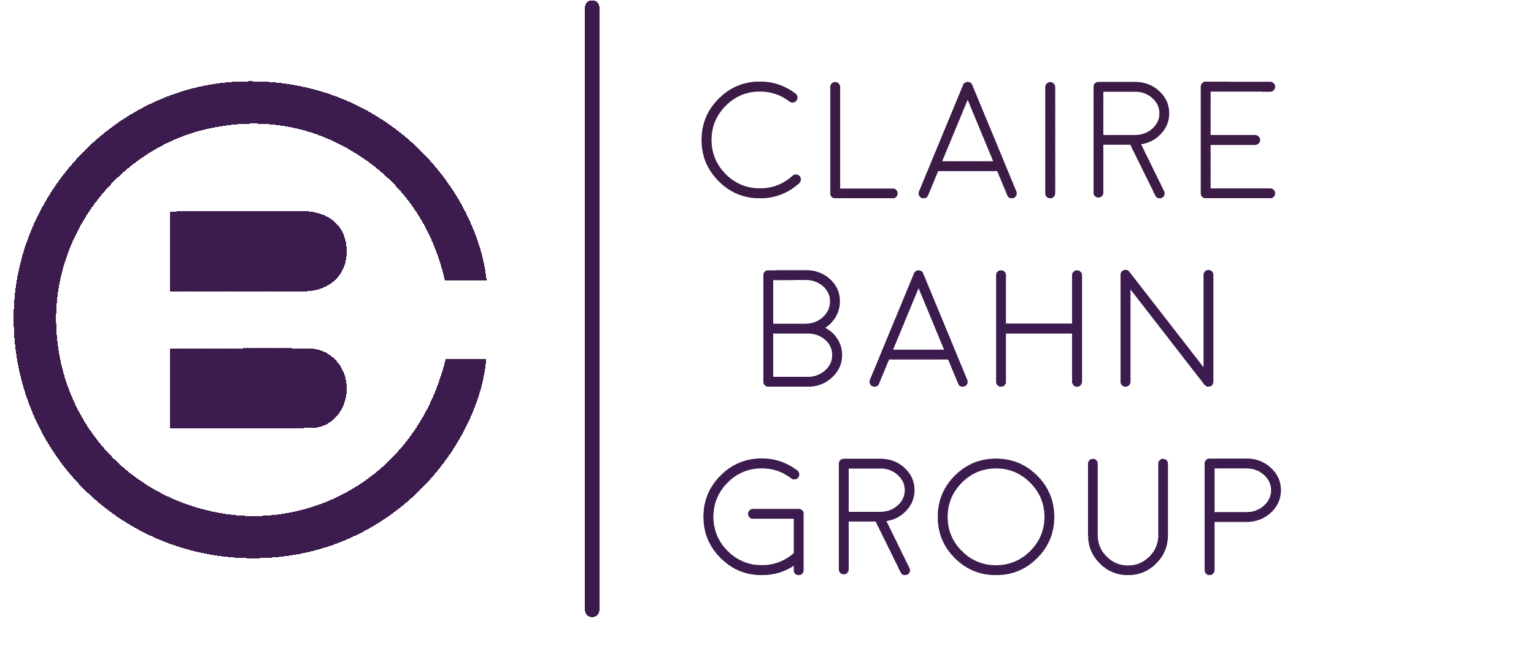How can Gen X and Boomers turn decades of experience into digital influence through modern personal branding? Why does standing out online matter more than ever for Gen X and Boomers navigating career transitions or leadership roles? What steps can Gen X and Boomers take to build a personal brand that highlights credibility—not trends?
This blog breaks down why personal branding has become a non-negotiable career asset for Gen X and Boomers, especially in a digital-first professional landscape. It explores how online visibility now shapes credibility, influence, and opportunity—often more than résumés or past achievements alone. By addressing misconceptions, highlighting the importance of reputation management, and explaining how experience becomes an advantage, the article shows Gen X and Boomers how to translate decades of expertise into a compelling digital presence.
The post also offers a practical roadmap for building and sustaining a strong personal brand, from choosing the right platforms to crafting a clear message, sharing meaningful stories, and engaging authentically online. It emphasizes that Gen X and Boomers don’t need to mimic influencer culture—they simply need to show up with clarity, consistency, and confidence. Ultimately, the blog demonstrates how personal branding helps Gen X and Boomers stay relevant, gain visibility, and turn long-earned wisdom into long-lasting influence.
Let’s talk about personal branding.
It’s one of those buzzwords that can sound a little overhyped, right? Especially if you’re part of the Gen X or Boomer generations, you might hear the term and immediately think of influencers posing with matcha lattes or twenty-somethings filming “day in my life” videos for TikTok.
But that’s not what personal branding truly is.
In today’s digital-first world, personal branding is simply how you show up—online and offline—in a way that communicates your credibility, values, and unique expertise. It’s your modern-day reputation. In the past, someone would have called your personal brand your Business Reputation.
Jeff Bezos says, “Your personal brand is what people say about you when you’re not in the room.” Whether you’re a seasoned executive, a consultant, or a professional entering a new chapter, your personal brand is the embodiment of your expertise and authority that anyone can see 24/7/365. Your personal brand enables you to control your own narrative, rather than leaving it to others. It’s your story that follows you everywhere.
And here’s the kicker: in this reputation-driven economy, that story matters more than ever.
For Gen X and Boomer professionals, personal branding isn’t about chasing trends or reinventing yourself as a social media personality. It’s about amplifying the decades of wisdom, experience, and trust you’ve already built and translating that into digital visibility and authority.
You’ve already done the hard part: building a successful career, mastering your craft, and earning respect in your field. Now it’s about making sure that expertise doesn’t get lost in the noise of the digital landscape or, more importantly, that opportunities are not lost because someone else with less experience and expertise overshadows your accomplishments.
So, let’s unpack how the world of personal branding has evolved, why it matters for professionals in mid-to-late career stages, and how Gen X and Boomers can leverage their experience to lead with authenticity, not algorithms.
Understanding the Modern Branding Landscape
“54% of employers have rejected applicants due to a weak or unprofessional online presence.”
There was a time when a polished résumé and a few solid references were all you needed to advance your career. Those days are long gone.
The shift from paper résumés and personal referrals to digital presence and online perception has completely redefined what it means to be visible. Now, when someone wants to know who you are or what you bring to the table, they don’t wait for your résumé; they Google you. They check your LinkedIn. They scroll through your website or read your guest articles.
In other words, your digital footprint is your first impression.
Today, credibility is measured not just by what you’ve done, but by what’s discoverable about you. The consistency of your voice across platforms, the quality of your insights, and the way you engage online all shape how others perceive your authority.
And algorithms? They’re the new gatekeepers. LinkedIn’s algorithm decides whose posts get seen. Google’s search results determine who appears as a thought leader. Even small actions, like commenting thoughtfully on someone’s post, writing an article, or updating your profile, feed into the digital ecosystem that shapes your reputation.
For Gen X and Boomers, this can feel like foreign territory. Many of you grew up in a professional world where modesty, discretion, and personal referrals were the currency of success. But in the modern landscape, invisibility can look like irrelevance. In fact, 54% of employers have rejected applicants due to a weak or unprofessional online presence.
The truth is, you don’t need to change who you are. You just need to translate your expertise into a format that the digital world understands.
Common Misconceptions Among Gen X and Boomers
Let’s clear the air about a few big misconceptions I often hear when I work with Gen X and Boomer clients.
Misconception #1: Personal branding is only for the younger crowd.
I can’t tell you how many times I’ve heard, “Isn’t that something for influencers?” No. Personal branding isn’t about chasing followers or dancing on TikTok. It’s about ensuring your professional reputation reflects your true value. The digital landscape doesn’t discriminate by age; in fact, your experience gives you an edge that younger professionals can’t fake, especially as more and more people are seeking out expertise over entertainment.
Misconception #2: Building a brand feels like bragging.
Many of us were raised to believe that good work speaks for itself. And it used to. But in today’s digital environment, silence often reads as absence. You don’t have to “sell yourself”—you simply have to share your story, your lessons, and your expertise in a way that helps others. Think of it less as self-promotion and more as thoughtful contribution.
Misconception #3: A strong brand has to look perfect.
This one’s big. Perfection feels safe, but authenticity builds trust. The most compelling personal brands aren’t polished to the point of sterility; they’re relatable, human, and real. When people see your humility, humor, or even a few bumps along the way, it makes you more credible, not less.
Once you stop viewing personal branding as vanity and start seeing it as visibility, the whole process feels much more natural.
Why Reputation Management and Digital Visibility Matter More Than Ever
Before we move into the foundational elements of a personal brand, it’s important to understand why building and protecting your digital presence is now non-negotiable, especially for Gen X and Boomer professionals.
Here’s the truth: if you’re not actively shaping your own narrative online, someone else will.
And in today’s hyper-connected world, your online reputation isn’t just a supplement to your career; it’s part of the decision-making process employers, clients, and collaborators rely on.
Your Reputation Is Already Online Whether You Manage It or Not
Many seasoned professionals assume that decades of experience and a strong real-world reputation speak for themselves. And they do, but only to the people who already know you. For everyone else? They turn to Google.
If your digital footprint is sparse, outdated, or inconsistent, you’re leaving your reputation vulnerable.
Worse, if something negative is posted about you—or if someone with far less expertise simply has more online visibility—your narrative is no longer in your control. In an era where misinformation and internet trolling are common, reputation management becomes a form of professional protection.
Personal branding is how you take that control back.
The Career Reality: Visibility Affects Opportunity
“70%+ of hiring managers review a candidate’s digital presence before deciding whether to interview them”
A growing number of Gen X and Boomer professionals worry about layoffs, restructuring, or career transitions. The concern is valid. Getting hired today is radically different from how it used to be, and the competition is fiercer than ever.
To future-proof your career, your online presence must work as hard as your résumé.
Here’s why:
- Applicant Tracking Systems (ATS) filter candidates long before humans do.
Most résumés today are scanned by algorithms, not people. If your online presence doesn’t reinforce your skills, keywords, and expertise, you may be eliminated before a hiring manager ever sees your name. - Hiring managers research you online—almost universally.
Studies show that 70%+ of hiring managers review a candidate’s digital presence before deciding whether to interview them, and nearly 50% have rejected candidates based on what they found (or didn’t find). Invisibility is no longer neutral—it can signal irrelevance. - Your experience only matters if it’s discoverable.
You may have decades of accomplishments, but today’s digital-first environment rewards those who can show their value, not just state it.
Reputation Management Is a Career Asset
Think of reputation management not as damage control but as strategic career insurance. A clear, consistent online presence ensures that:
- Your accomplishments are easy to find.
- Your story is told in your
- Your credibility is reinforced, not questioned.
- Opportunities come to you, not just through who you know, but through who can find you.
For Gen X and Boomer professionals, this is incredibly empowering. You’re not building a brand from scratch—you’re distilling years of wisdom into a visible, modern, authoritative presence that reflects the real depth of your expertise.
Core Elements of a Strong Personal Brand
Now that we’ve cleared up what personal branding isn’t, let’s talk about what it actually takes to build one that works for you.
A great personal brand for Gen X and Boomers rests on four key pillars:
- Defining Your Identity and Niche
Before you start posting or networking online, get clear on your “why.” What’s your expertise? What’s your passion? What do you want to be known for? It’s not about being everything to everyone. It’s about claiming your lane and owning it. - Crafting a Clear Message
Your message should capture your unique value and point of view. Whether it’s “helping executives lead with empathy” or “translating complex data into actionable business strategy,” clarity is what turns casual visitors into engaged followers. - Consistency Across Platforms
Your LinkedIn, website, and social channels should feel like chapters of the same story. Consistent visuals, tone, and messaging reinforce your credibility. Think of it like your professional wardrobe. It doesn’t have to be identical, but it should all “fit.” - The Power of Storytelling
This is where your decades of experience become gold. Stories about challenges you’ve overcome, lessons you’ve learned, or moments that shaped your leadership make your expertise relatable. People don’t remember titles; they remember stories that made them feel something.
At its core, your personal brand should feel like an authentic extension of who you are, just translated for the digital stage.
Leveraging Experience as a Differentiator
Here’s the good news: Gen X and Boomer professionals already have the hardest part of personal branding figured out: substance.
You’ve got decades of insights, achievements, and wisdom. The challenge is packaging that experience in a way that today’s digital audience can absorb and appreciate.
1. Turn your experience into authority
Write articles or posts that distill what you’ve learned into actionable insights. Share stories about how your industry has evolved, and what younger professionals can learn from that. When you publish knowledge, you establish yourself as a thought leader.
2. Highlight your longevity as a sign of adaptability
A long career isn’t just a timeline; it’s evidence of resilience. You’ve navigated recessions, tech revolutions, and industry shifts, and you’re still standing. That adaptability is incredibly relevant in a fast-changing world.
3. Showcase your mentorship and leadership
One of the greatest assets Gen X and Boomers have is perspective. Use your digital presence to mentor publicly. Answer questions, comment on posts, or even host a short LinkedIn Live discussion. You’re not just telling people what you know; you’re demonstrating generosity and leadership.
In a marketplace where attention spans are short, wisdom and credibility stand out. When your brand reflects the confidence and clarity that come from experience, you naturally attract respect and opportunity. Think of your personal brand as an investment for opportunities.
Building Digital Presence Without Overwhelm
Here’s something I tell all my clients: you don’t need to be everywhere. You just need to be somewhere, consistently.
Start with the platforms that make sense for your goals. If you’re a consultant or corporate professional, LinkedIn should be your home base. If you love to write, publish articles on Medium or your own blog. If you’re more visual, Instagram can showcase your behind-the-scenes process or values.
A few practical steps to get started:
- Optimize your profile. Your headline, bio, and profile photo should clearly communicate who you are and what you offer. Think of your LinkedIn summary as your digital handshake.
- Create content that educates or inspires. Share lessons learned, observations about industry trends, or quick tips your audience can apply.
- Engage intentionally. Comment thoughtfully on others’ posts, endorse colleagues, and join relevant online groups. Networking online isn’t about volume; it’s about authenticity.
- Stay visible. Regular activity signals credibility. Even posting once or twice a week keeps you top of mind.
If the idea of building a digital presence feels overwhelming, start small. Think of it as an extension of your offline reputation—one post, one conversation, one connection at a time.
Networking and Reputation in the Digital Era
Let’s be honest: Gen X and Boomers grew up on traditional networking—conferences, mixers, business cards, and lunches. And those still matter. But in the digital age, relationships start (and thrive) online.
The secret is to blend both worlds.
Engage genuinely online. Comment on someone’s article. Congratulate a colleague on a new role. Share resources that help others. When you engage with authenticity, you strengthen your reputation as someone generous and thoughtful, two qualities that never go out of style.
Join virtual communities. Whether it’s an industry association on LinkedIn or a mastermind group on Facebook, online spaces create opportunities for connection beyond geography. Your next big collaboration or client could come from a single thoughtful exchange.
Handle criticism with grace. Online visibility means you might occasionally encounter negative comments or differing opinions. Don’t let that scare you off. How you respond—calmly, professionally, and with perspective—reinforces your brand integrity.
At the end of the day, your network is your net worth, and in today’s world, that network spans both boardrooms and browser tabs.
Sustaining and Evolving Your Personal Brand
A personal brand isn’t something you build once and forget. It’s a living, breathing reflection of your growth.
As your goals shift—maybe you retire, launch a consultancy, or start a new venture—your personal brand should evolve with you.
Here’s how to keep it strong and relevant:
- Stay curious. Lifelong learning keeps your expertise fresh. Take courses, attend webinars, or stay current on new industry trends. When you share what you’re learning, it shows you’re not stuck in the past; you’re leading into the future.
- Revisit your message regularly. Every few months, review your bios, posts, and website. Do they still reflect who you are and what you want to be known for? Your brand should grow with you.
- Seek feedback. Ask trusted peers how they perceive your brand. What qualities stand out? What might be unclear? Honest input helps you refine your message and ensure it resonates.
- Show up consistently. Authority isn’t built overnight. It’s built through presence, patience, and persistence.
Think of your personal brand as a professional legacy in progress. It’s not about staying trendy; it’s about staying true.
Conclusion: Experience is Your Superpower
Here’s the truth I wish more Gen X and Boomer professionals understood: your personal brand isn’t about trying to look younger, louder, or trendier. It’s about owning the power of your experience and sharing it in a way that connects.
The digital landscape has leveled the playing field. A 28-year-old can build a following overnight, sure. But you have something far more valuable—depth, credibility, and the ability to offer perspective that only comes from time.
Personal branding is your bridge between what you’ve achieved and what’s possible next. Whether you want to attract consulting opportunities, speak on panels, or simply stay relevant in your industry, your online presence is the invitation that opens those doors.
So, start where you are. Polish your profile. Tell your stories. Share what you know. Let your personality and your professional journey shine through.
Because when people see not just what you’ve done, but who you are, that’s when your personal brand becomes unstoppable.
And if there’s one thing I’ve learned from working with Gen X and Boomer professionals, it’s this: influence doesn’t fade with age. It compounds when you let the world see it.


